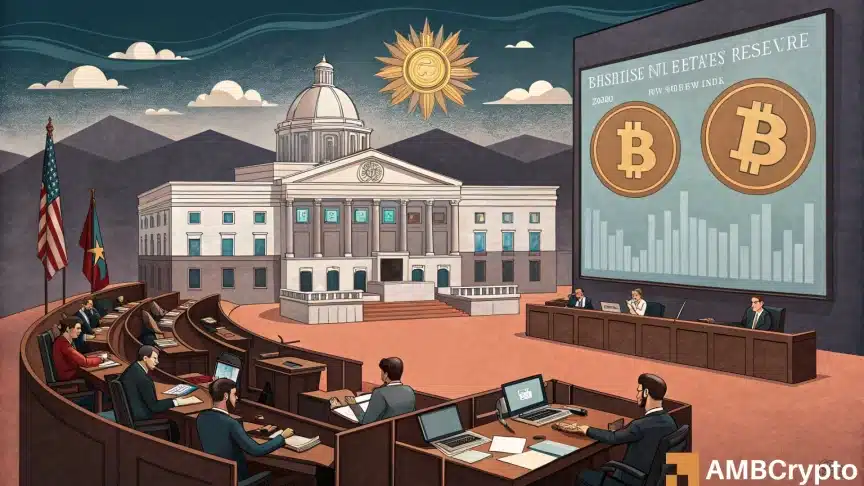- Arizona sets Bill to manage digital assets confiscated via a new reserve fund.
- Several American states to explore similar crypto reserve legislation after Arizona.
The legislators in Arizona have recently taken the headlines for their position on digital assets, because recent legislative developments have emphasized both support and caution within the leadership of the state.
Earlier this year, Governor Katie Hobbs signed two important accounts in the law.
House Bill 2749 marked the first official relocation of Arizona to set up a digital asset reserve, while House Bill 2387 introduced the standards for consumer protection for cryptocurrency money machines.
At the same time, she has exercised restriction through more ambitious proposals with regard to investments in the public in Crypto and the creation of a broader crypto reserve fund.
Arizona revives house Bill 2324
Despite these vetos, the momentum took place in the legislative power, with the Senate of Arizona recently passing the Bill 2324 house.
This is one renewed Initiative to create a reserve fund for digital assets obtained through a criminal forfeiture, with tHe now goes to the house for definitive consideration.
House Bill 2324, once offside, was revived by strategic “motions to reconsider” introduced in both legislative rooms.
This procedural maneuver was able to reduce the bill for a different vote.
The bill, introduced by the Republican Senator Jeff Winger, also wants to update Arizona’s forfeit laws to specifically tackle the treatment, storage and distribution of digital assets.
If adopted, the legislation would establish a Bitcoin and Digital Assets Reserve Fund, managed by the treasurer of the state of Arizona, specifically to supervise the handling of digital assets obtained by criminal confiscation.
Details of the bill
House Bill 2324 outlines a clear framework for how the sale of the sale of forfeited digital assets would be allocated.
According to the proposal, the initial-generated $ 300,000 would be addressed to the anti-racing fund of Arizona.
Any amount that exceeds that threshold would be further distributed; Half would continue to support the anti-rac color fund, while the remaining half would be split evenly between the general fund of the state and the proposed Bitcoin and Digital Assets Reserve Fund.
This layered distribution structure ensures that both law enforcement and financial interests of the state are supported by the forfeiture of digital assets.
The Senate approved the measure in a narrow 16-14 votes, usually along party lines, with only one Republican, Jake Hoffman, deviate.
In fact, the return of the bill to the floor was made possible by another Republican Senator, Janae Shamp, who was also against it earlier. However, because they were against it earlier, they were also eligible to request reconsideration.
Now HB 2324 is waiting for a vote in the house, where the support of the Republican majority needs to continue to the Governor’s office.
Will other states follow?
While Arizona would only be the second state after New Hampshire to pass a bitcoin [BTC] Reserve Bill, it reflects a wider trend that gets a nationwide grip.
Texas has already approved a similar legislation, and a wave of states, including Illinois, Kentucky, Utah, Maryland, New Mexico, North Dakota, Ohio, Pennsylvania, South Dakota and Wyoming are investigating their own versions of digital assets.
Although it remains uncertain how much will eventually succeed, it is clear that the conversation about the crypto policy at state level is quickly evolving and the actions of Arizona can be the scene for more structured approaches throughout the country.



